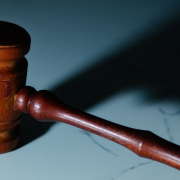Bitcoin is not a currency – at least that is what the AAT says in Seribu Pty Ltd v CoT in 2020.
Bitcoin is Not a Currency
You might have heard of the court case that confirmed that Bitcoin is not a currency. It was Seribu Pty Ltd v Commissioner of Taxation in 2020.
Here is Adam Ahmed, the solicitor for the applicant, about how this case came about, what happened, and how it ended.
Here is one thought about all this, but we really don’t do justice to what Adam discusses in this episode. So please listen to the episode and take these show notes just as a small taster.
To listen while you drive, walk or work, just access the episode through a free podcast app on your mobile phone.
Bitcoin is Not a Currency
Bitcoin is not a currency per the AAT ruling Seribu Pty Ltd v CoT. Although we as humans have used thousand of different things as currency over our history as homo sapiens, the AAT does not see Bitcoin as a currency.
This is a legal decision but it is also a political decision. And that political decision is very much shaped by the rum rebellion in NSW in 1808. This is also how the ruling starts – with a historical review of the rum rebellion.
Rum as Currency
Conditions in the new colony were pitiable around 1800. There was nothing to buy. People survived on rations handed out by government stores.
And there was nothing to buy it with. There was no currency, no money supply, and no banking system. Yes, there was the pound sterling some ships had brought across. But there weren’t enough coins to go around.
So people used a barter system to trade things of value. And by doing this new currencies came about, and not just one, but many different ones. And one of these was rum.
The barter system included a lot of written ‘I Owe You’, ie IOU. If you were entitled to goods from the government store, you could sign a document transferring that right to another. The only problem was that the colony was full of people convicted of forgery. And so a lot of the IOUs in circulation were fake.
Rum made a good currency. It was a valuable asset in its own right. It was in high demand. But you could also use it as a currency to trade.
Rum Rebellion
Officers in the New South Wales Corps and some prominent citizens had taken control of the rum trade and made very good money out of it. In fact, it became a licence to print money.
Governor William Bligh tried to ban the trade and break the officers’ control of the rum trade and hence the currency. Of course, the officers didn’t like that. And so in 1808 they fought back and deposed and arrested Bligh. An act, that became known as the rum rebellion, a defining event in Australia’s colonial history.
But of course, it was too good to last. And so it ended when Lachlan Macquarie, the new governor, arrived in Sydney, arrested the leaders, and recalled the New South Wales Corps in 1810.
Fixing the Problem
To fix the problem, Macquarie assigned licences to import and deal in rum to selected merchants. In return, they promised to build public works and did. That dealt with the rum problem.
To deal with the money and economic problem, Macquarie established a new money supply in 1813 by importing Spanish coins, which a convicted forger then turned into official local currency. And he established the Bank of New South Wales in 1817. And that set the course for a stable money supply.
So this was the rum rebellion. The fact that the ruling starts with it already foreshadows its end. Insisting on the importance of a stable money supply.
Control
The ruling points to ‘the importance of a stable money supply under the supervision of the government’. To manage the economy governments need to have control over monetary policy, including control of the currency and money supply.
In Australia, this control over the currency is exercised by the Commonwealth under the Currency Act 1965 and Part V of the Reserve Bank Act 1959. The Currency Act establishes the Australian dollar as this country’s official currency.
That is what the ruling points to in the first dozen paragraphs. And with that, it really already has said it all. Looking at the rum rebellion, there was never really any other option than to rule that Bitcoin is not a currency.
Listen to the Episode
But this is just one aspect of the ruling. There is a lot more Adam Ahmend, the solicitor for the applicant, discusses with you in this episode. So please listen in as we have really only scratched the surface here.
MORE
Disclaimer: Tax Talks does not provide financial or tax advice. All information on Tax Talks is of a general nature only and might no longer be up to date or correct. You should seek professional accredited tax and financial advice when considering whether the information is suitable to your or your client’s circumstances.
Last Updated on 27 March 2023
Tax Talks spoke to Adam Ahmed - Director at Adam Ahmed & Co. - for more details.







